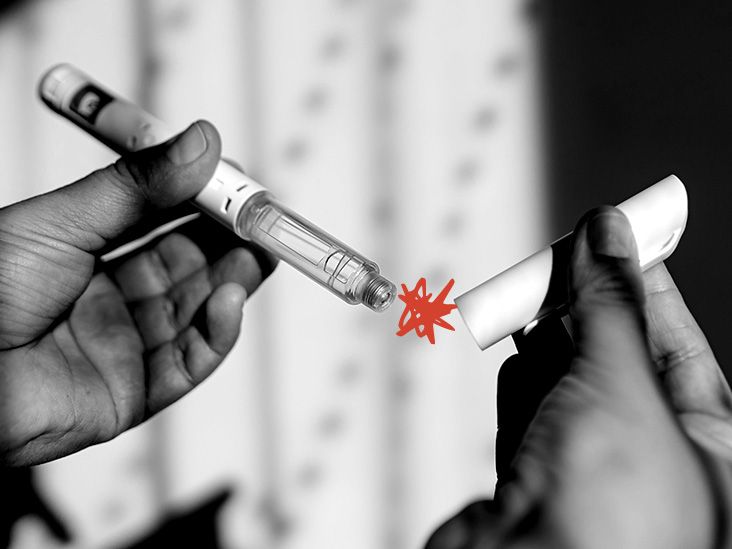Primary biliary cholangitis (PBC) is an autoimmune disorder that leads to the destruction of bile ducts within the liver. As more bile ducts become lost and damaged, bile acids build up within the liver, resulting in liver damage and disease.
The liver plays several important roles in the body, including digestion and metabolism. As liver damage in PBC progresses, it can lead to nutritional or metabolic complications. Individuals can address this with diet changes. Complications may include:
- fluid retention (edema) or buildup (ascites)
- elevated cholesterol levels
- bone loss (osteoporosis)
- vitamin and nutrient deficiencies
- digestive issues
Dietary needs will vary from person to person based on symptoms and the stage of their disease. A registered dietitian specializing in PBC or other liver diseases can provide recommendations based on a person’s circumstances.
Read on for recommendations for people living with PBC to help manage symptoms and avoid or address disease complications.
There are no specific dietary guidelines for people with PBC because everyone’s journey with the disease is different. Additionally, different types of diets have not been specifically studied in people with PBC, making it difficult to predict the potential benefits (or risks).
No matter which diet a person follows, essential nutrients to consider when building a meal plan include:
- Protein: Opt for lean meats or other sources of protein, such as dairy products, beans, eggs, and nuts.
- Carbohydrates: Prioritize whole grains and complex carbohydrates, which can help avoid major fluctuations in blood sugar levels throughout the day.
- Fats: Focus on getting enough “healthy” unsaturated fats and omega fatty acids. Olive oil, nuts, seeds, and fatty fish are good sources of these types of fats.
- Fiber: Less than 1 in 10 adults in the United States get enough fiber in their diet, which can affect metabolic, cardiovascular, and digestive health. Whole grains, fruits and vegetables, nuts, seeds, and legumes are all good sources of fiber.
Metabolism of dietary fats is affected in people with PBC, which can lead to a variety of problems. These include deficiencies in fat-soluble vitamins such as vitamins A, D, E, and K.
Unsaturated fats are recommended for people with PBC because they provide a variety of other benefits, including helping with heart health. This is especially important since people with PBC are more likely to develop high cholesterol levels.
A doctor or dietitian may recommend vitamin supplements to help ensure people with PBC get enough of each vitamin in their diet. Healthcare professionals should carefully monitor these amounts as levels of fat-soluble vitamins can build up in the body and result in toxicity. Some of these may contribute to liver damage.
Since people with PBC are also at increased risk for bone loss, a dietitian may recommend a calcium supplement to promote bone health. Calcium-rich foods include:
- dairy products
- fortified juices, cereals, and breads
- canned fish
- cooked leafy green vegetables
In addition to eating foods that nourish the body, it is important to avoid or limit foods that may be harmful.
Excess sodium levels can contribute to water retention and fluid problems and may worsen hypertension caused by complications from PBC. It is best for people with PBC to limit highly processed or packaged foods, which often contain high levels of sodium, and instead opt for whole foods. Avoid adding salt to foods and instead opt for herbs, spices, or salt-free seasoning blends to help limit sodium intake.
High sugar diets can also be difficult for the liver to process and may result in a buildup of fatty deposits, leading to additional liver damage. Individuals can prevent excess dietary sugar by avoiding or limiting sugary drinks and desserts. In general, it is best to avoid or limit foods with added sugars and opt for those with naturally occurring sugars, such as fruit.
As noted, dietitians will advise prioritizing unsaturated fats over saturated fats. This means avoiding foods high in saturated fats, like:
- creams and butters
- fatty beef and pork
- sausages and bacon
- deli meats
As the liver metabolizes alcohol, it is important to limit alcohol intake. This is especially relevant for people who may already have liver damage or cirrhosis.
People with PBC and other types of liver disease are prone to severe complications from foodborne illnesses. In addition to practicing good food safety, people with PBC may consider avoiding high risk foods such as raw or undercooked fish, shellfish, or meats, as well as unpasteurized milk.
The liver plays an important role in digestion and metabolism, and liver damage in PBC can affect nutritional health. Many problems linked to PBC require dietary changes alongside other medical treatments for optimal results, and nutritional requirements may vary based on disease progression and complications.
A registered dietitian is an essential part of the PBC care team. They can help provide specific recommendations based on a person’s unique needs. They can also provide support when developing a PBC-friendly diet to address disease complications and help individuals meet their nutritional needs.


